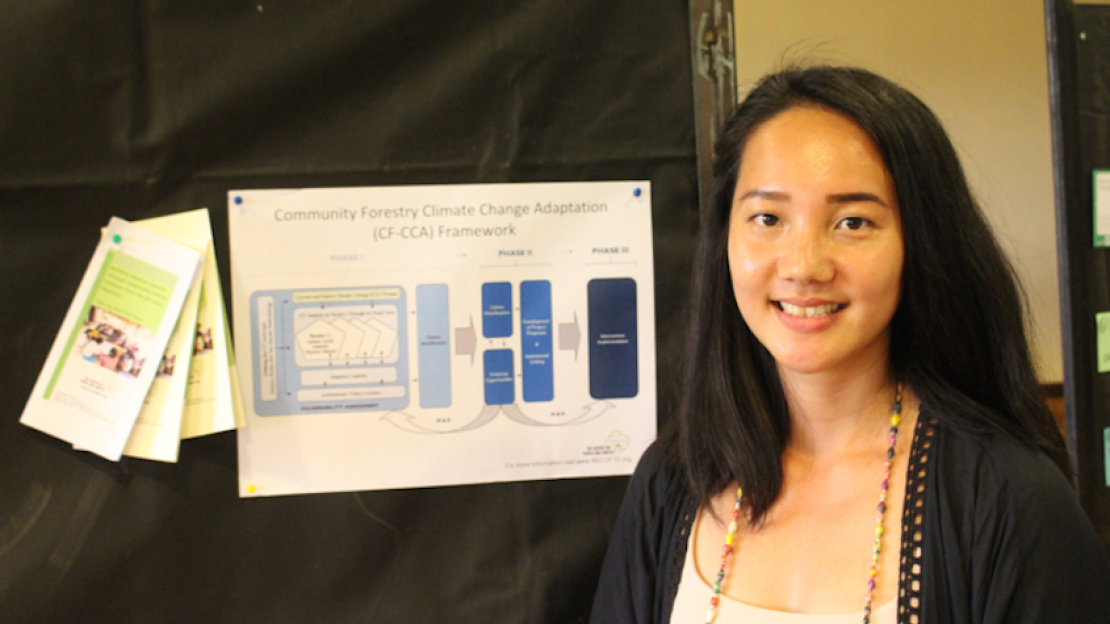While Tian Lin was doing her co-op placement in Bangkok, Thailand, she learned that field research sometimes requires a little extra flexibility, patience and ingenuity.
Lin, a fourth-year student in the International Development Studies Co-op Program at U of T Scarborough, worked as a participatory monitoring and evaluation intern at the Center for People and Forests. The organization promotes community involvement in sustainable forest management in the Asia-Pacific region, and one of her main roles involved building an online monitoring database. She also conducted research for her own thesis.
“We encountered a number of challenges in the research process,” she says. “One day none of the community members showed up for research activities they’d agreed to participate in. Later, we learned from the village leader that they saw our presence as a potential threat to their land. This experience taught me the value of having an excellent research team that can offer support to overcome barriers.”
Lin’s thesis examines how community forestry can build the capacity of local populations to adapt to climate change. She travelled to Myanmar to gather data and shared some of her research findings at a conference in Uganda – a high point of her placement, she says, that inspired her to consider a new direction for graduate studies. “I met a social activist who introduced me to the idea of using block chain technology to secure land rights, which led me to think about the potential for using technology to reduce land grabbing in Myanmar. I’m now exploring master’s programs in technology and policy.”
“I met a social activist who introduced me to the idea of using block chain technology to secure land rights, which led me to think about the potential for using technology to reduce land grabbing in Myanmar," says Lin. "I’m now exploring master’s programs in technology and policy.”
Lin looks back on her co-op placement as an experience that stretched her both personally and professionally, but was ultimately enriching in both domains. “I learned to navigate Thailand as a first-time lone traveller, which was challenging at first given that I didn’t know the language or landscape,” she says. “And while I initially struggled to find an identity in the organization, I formed meaningful relationships with my colleagues. I’m still in communication with several of them, and I hope to see them again in the near future when I pursue graduate studies in Southeast Asia.”
